How to Get the Most Benefits of Antioxidants in Tea
TEATIME NOTES
Find tips, recipes, and articles to increase your delight and enjoyment of tea.
How to Get the Most Benefits of Antioxidants in Tea
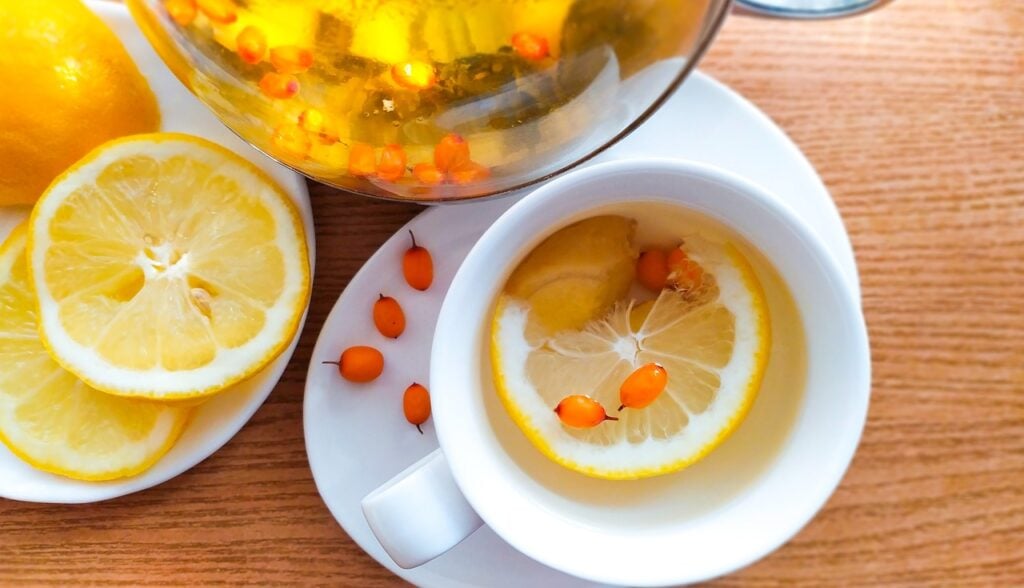
Astonishing Ways to Steep Tea with Nutrient-Rich Results
Have you ever wondered what the benefits of antioxidants in tea really are? Tea is rich with them, but what exactly do they do? And is there a way to get more of these beneficial compounds out of tea?
Today, we are talking all about antioxidants in tea, and how you can get the most benefits out of every batch you steep. Run through a short list of some of the most important antioxidants you’ll find in different teas.
Then, we will teach you how to make tea a little differently so you can get the maximum antioxidants possible — a fair warning: you might not like what the studies recommend for steeping times! But there is a cold-brew method that shows some amazing promise for flavor and nutrients you have to check out.
We also have some alternative solutions so you can boost your antioxidants without going overboard on steeping times. Ready to dive in? Let’s explore the benefits of antioxidants in tea and how to get them.
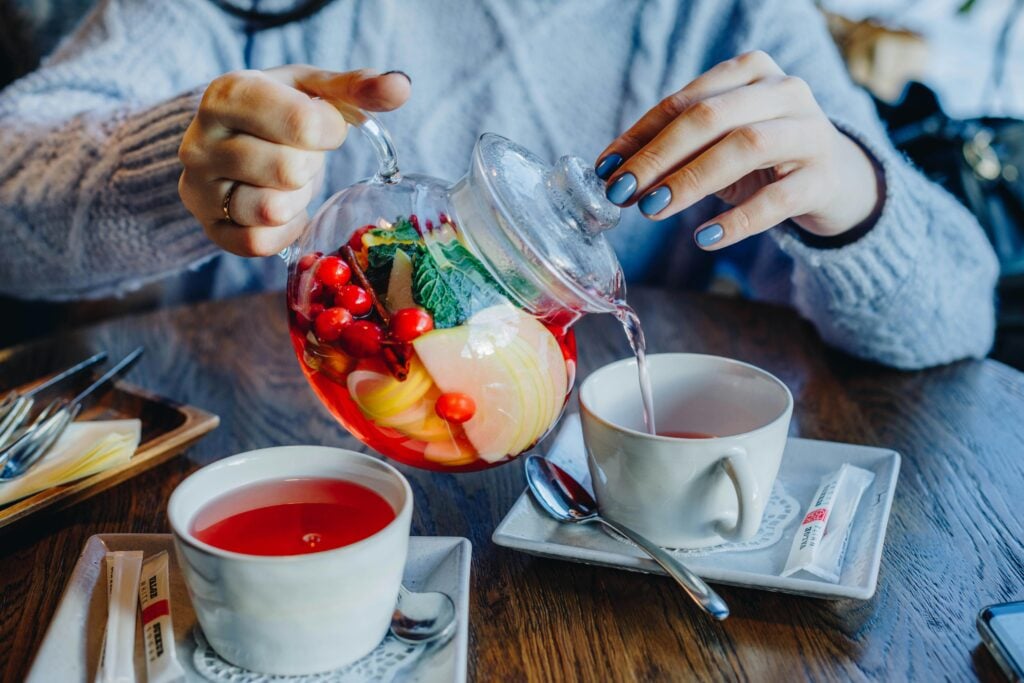
What Are Antioxidants?
Antioxidants can be found in foods like red cabbage, blueberries, and so much more, including tea. Antioxidants can help combat the negative and damaging effects that free radicals have on your body. They can help prevent or reduce cell damage, help with heart health, and even combat certain diseases and cancers.
Antioxidants in Tea
Tea contains beneficial antioxidants including polyphenols. All true tea might come from the Camelia sinensis plant, but not all teas have the same antioxidant properties. The way tea leaves are treated and prepared after harvest determines which antioxidants will be more prominent in the tea.
Polyphenols in Tea
These antioxidants can be found in all real teas, including black, green, white, and oolong. Polyphenols in tea are known for their antioxidant, anti-inflammatory, and anti-cancer characteristics and their aid with digestion.
Heat and Steam Reduce Polyphenols in Tea Leaves
It’s important to note that polyphenols in tea can reduce with too much heat. Black tea has fewer polyphenols because the tea leaves are roasted, steamed, and treated with higher levels of heat. This might be why studies reveal higher amounts of polyphenols in green tea, which is only lightly roasted.
Polyphenols in Herbal Teas and Decaffeinated Teas
Herbal blends are naturally caffeine-free and not made with tea leaves. They can contain polyphenols as well, depending on the herbs or plants.
It’s important to note that polyphenol levels are reduced drastically for decaffeinated teas, though. You will get more polyphenol benefits from real, caffeinated teas as opposed to the decaffeinated version.
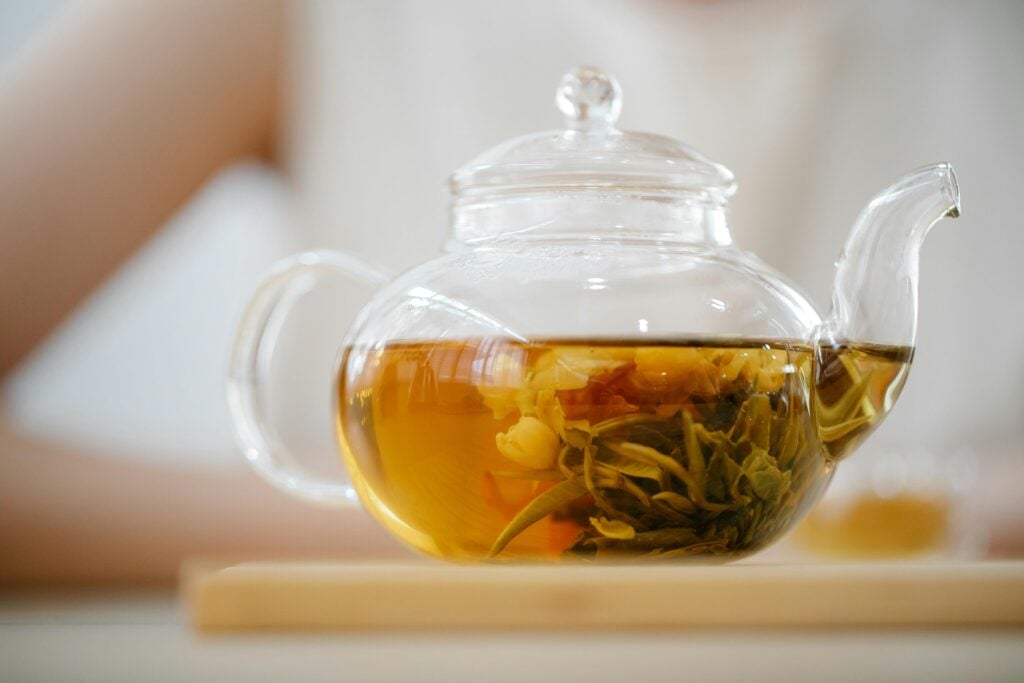
Flavonoid Variations in Black and Green Teas
All true teas have flavonoids — a type of antioxidant that comes from certain plants.
Green tea is barely oxidized and has more catechin antioxidants than black tea. Black tea — which is highly oxidized — is richer in theaflavin antioxidants than green tea. Both kinds of antioxidants have beneficial properties that may boost your health and may combat certain cancers.
Green Tea is Rich in Catechins
There are more catechin antioxidants found in green tea than in black tea. The strongest of the catechins is epigallocatechin-3-gallate (EGCG), which may help increase the success of chemotherapy treatments. EGCG might even slow the growth rate of certain cancer cells.
Black Tea is Rich in Theaflavins
Black tea is higher in theaflavin antioxidants than green tea because it’s oxidized. Theaflavins may be able to break down the protective barriers to certain kinds of cancer cells, making treatment more effective. They may also reduce or slow cancer growth.
Which Tea is the Best for Antioxidants?
There is no “correct” answer for choosing the best antioxidant-rich tea. The best tea for you will depend on your dietary needs.
Both green and black tea have strong antioxidant benefits that address different needs. They both show promising signs of anti-cancer properties but in different ways. Specific antioxidants may be higher in herbal teas — known as tisanes — depending on the kinds of fruits and herbs steeped.
When it comes to drinking tea for your health there aren’t definitive right or wrong answers. As long as it hasn’t been decaffeinated, tea is rich in antioxidants, beneficial vitamins, and compounds. Drink a variety of teas to get a well-rounded antioxidant experience.
How Do You Steep Tea for More Antioxidants
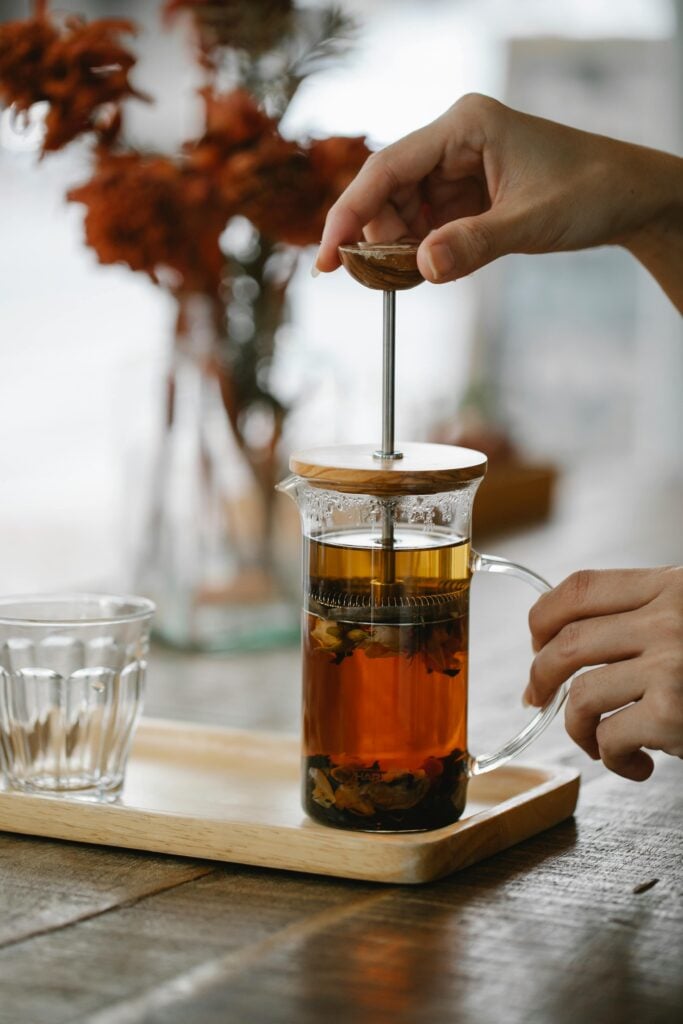
Brace yourself, tea lovers — this section is a little hard to read. First, throw everything you know about steeping a proper serving of flavorful and delicious tea out the window. If you want to get the most benefits of antioxidants in tea, you might have to sacrifice a lot of flavor in the name of health.
Here are some tips for steeping your tea so you can extract more antioxidants:
Use Hot Water for More Antioxidants
Yes, you read that right: hotter water equals more antioxidants. This includes green tea, which is traditionally steeped in much cooler water than black tea.
If you want to pull those beneficial antioxidants out of your tea, this study suggests steeping all teas in boiling hot water at 212 degrees Fahrenheit. You may scorch your tea leaves, but this could be one of the most effective ways to extract those nutrients.
Longer Steeping Generally Equals More Antioxidants
Get ready for some ridiculously strong tea. In the same study, the antioxidant levels for every tea increased with a steeping time of 60 to 120 minutes. However, some studies state that steeping black tea for a longer time may reduce antioxidant levels.
In this study, black tea antioxidants decreased after a short steep. White tea antioxidants increase based on steeping time and not water temperature. Green tea antioxidants increased with a longer steep at hot temperatures.
Matcha is an Instant Dose of Antioxidants

Matcha is a pure powder tea and might be categorically separate from the rest of these teas because the leaves are never removed. Matcha is made by grinding up tea leaves until it’s powder-fine.
If you want instant benefits of antioxidants in tea, you may want to drink matcha. When hot water is added to matcha powder, the antioxidant levels are typically as high as they can get.
Hot-Steep for 120 Minutes Max
If you’re using hot boiling water, steep your tea leaves for no more than 120 minutes. At this point, all teas in the study above reached their peak for antioxidant levels. After 120 minutes, every tea had a steady decline in antioxidant levels.
Cold-Steep to Preserve the Benefits of Antioxidants in Tea
Steeping cold brew tea might be the best way to preserve antioxidants. Cold brew methods allow the tea to steep at room temperature or in cold water for a longer time. According to this study, cold water may protect and bring forward more antioxidants than hot steeping or flash iced tea methods, which can risk harming certain antioxidants.
The only downside to this method is it takes a long time for tea to steep. The upsides are that the flavor is not bitter, it has less caffeine, and so many people say it tastes better.
The study also found that the antioxidant benefits of cold steeping tea maxed at 12 hours. Make sure to remove your tea leaves after 12 hours or even sooner.
How to Add More Antioxidants to Your Tea

Steeping your tea for two hours is fine if you want a strong, bitter drink packed with tons of antioxidants. But, tea is already naturally rich in all kinds of antioxidants. If all you want is a slight boost in antioxidants, add a few extra nutrient-rich ingredients to your tea.
Add a slice of lemon to your green tea. Did you know that lemon or citrus might unlock more nutrients in green tea? It’s a great trick to boost the benefits of antioxidants in tea without steeping it too long.
Or add antioxidant-rich spices to your black tea, like clove, turmeric, or cinnamon. Adding fruit, herbs, and spices to your tea is an excellent way to add a boost without sacrificing your time or your tea’s flavor. Goodness knows, you probably aren’t up for drinking a chalky, muddy cuppa that sat steeping for two hours.
Teaware for Antioxidant Preservation
Go ahead and have a cup of tea with a healthy dose of antioxidants. Don’t worry too much about honing in on one tea to get maximum nutrients. If you want to get the most out of the health benefits of antioxidants in tea, drink the whole rainbow.
If you really want to get the most out of your healthy teas, only drink from teaware that helps preserve antioxidants and enhances the flavor of your tea. Borosilicate glass teaware is a pure and sustainable option for tea and health enthusiasts. This teaware is chemical-free and has all the benefits that porcelain and stoneware do not have.
Join Teabloom on its mission to clean up the tea industry. Explore their extensive and exquisite collection made to support your health and promote the benefits of antioxidants in tea. Make the switch to better teaware, today.
*The information provided in this post is not intended to be a substitute for professional medical advice, diagnosis, treatment, or prevention. If you or someone you know has a medical concern, you should consult with your professional healthcare provider or seek other professional medical treatment.

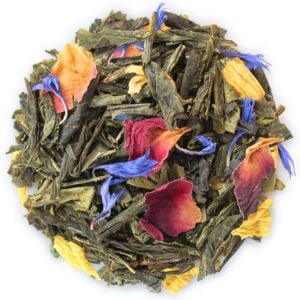

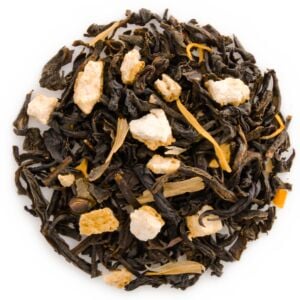
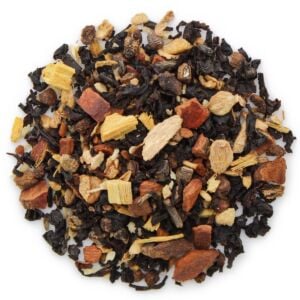
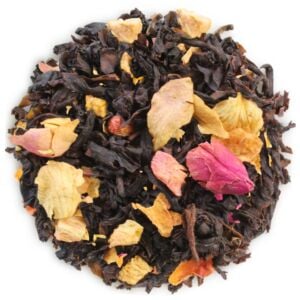
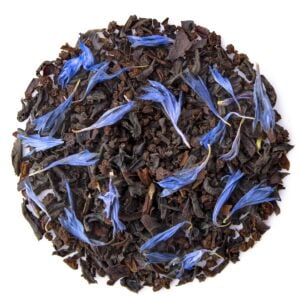
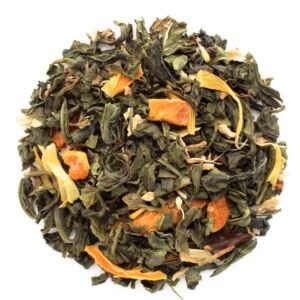
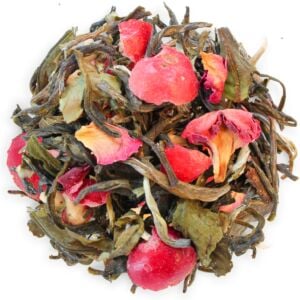
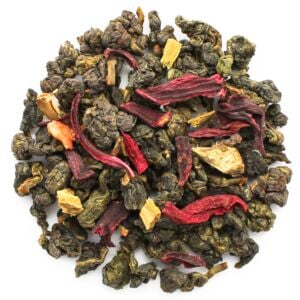
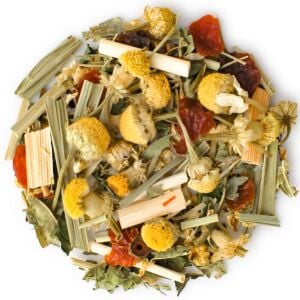
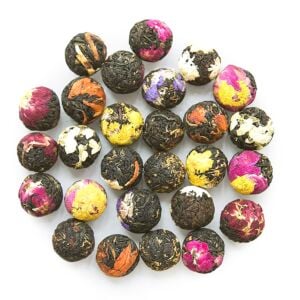



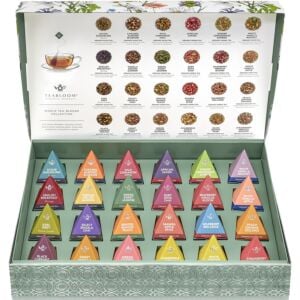


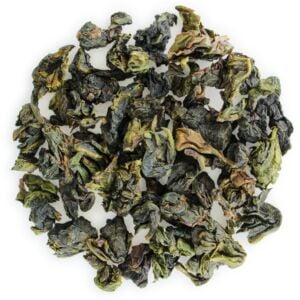
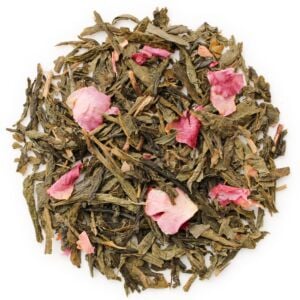
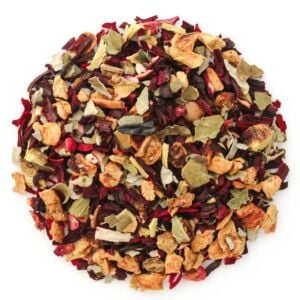
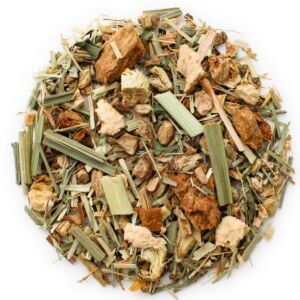
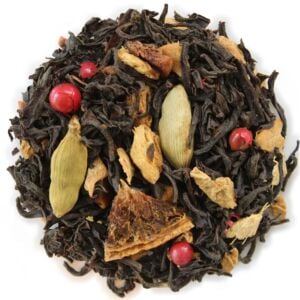
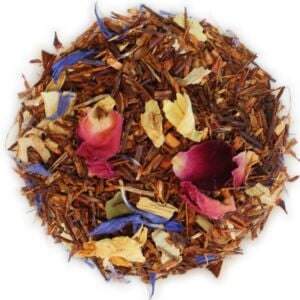
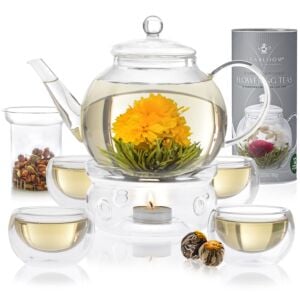
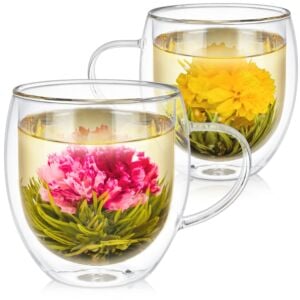
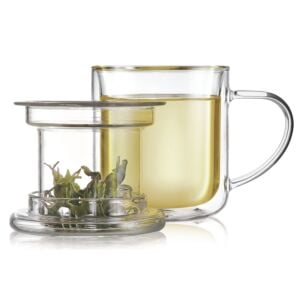

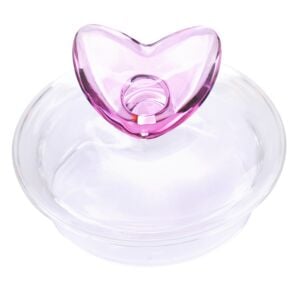
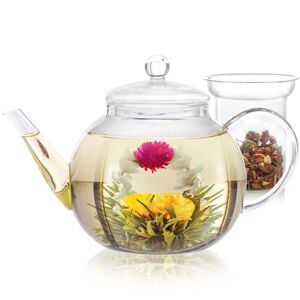
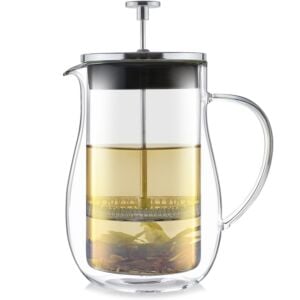
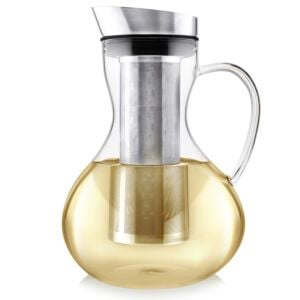
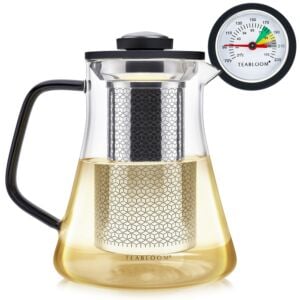
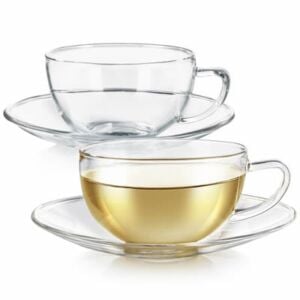

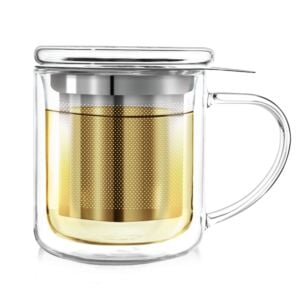
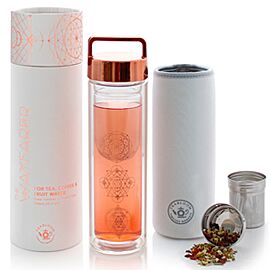

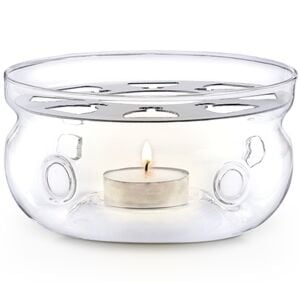
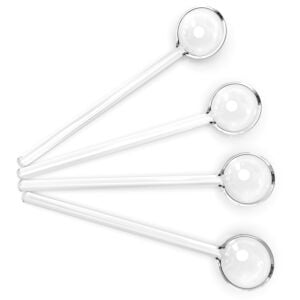
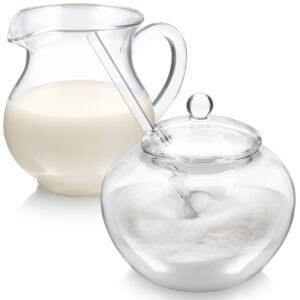
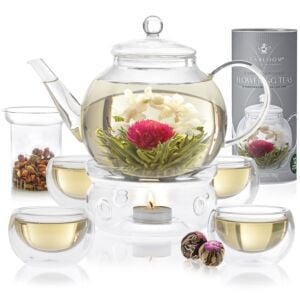

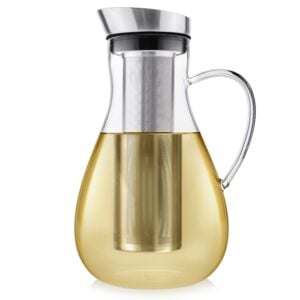
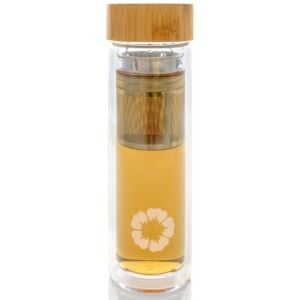
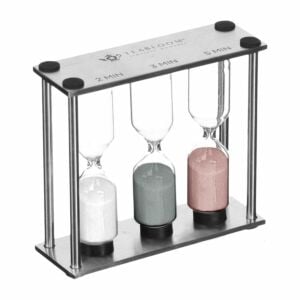
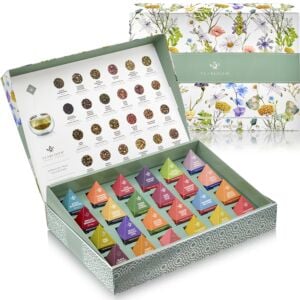
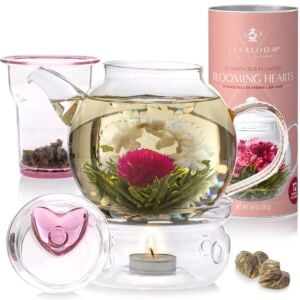
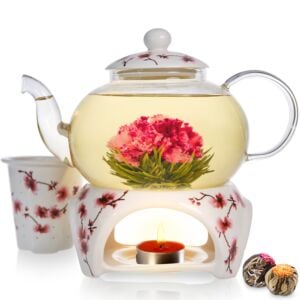
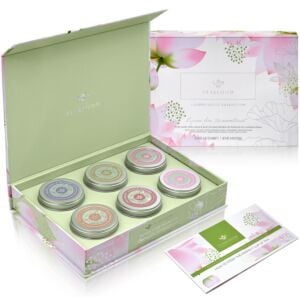



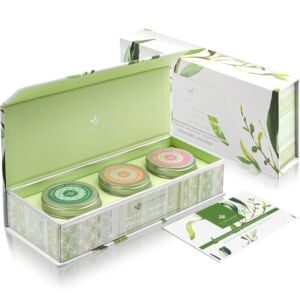
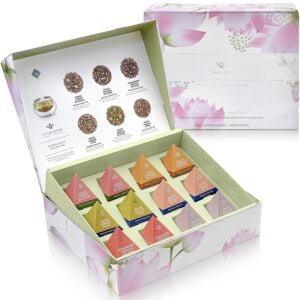

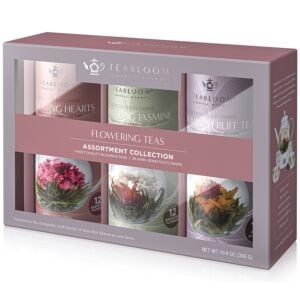

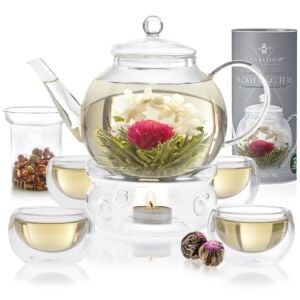
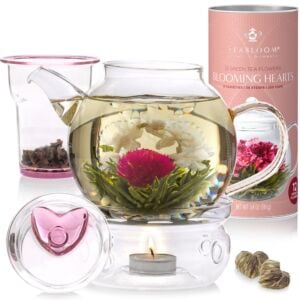

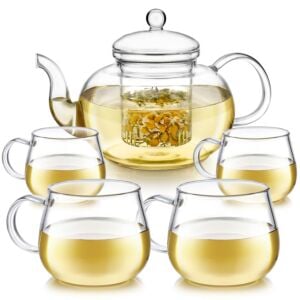
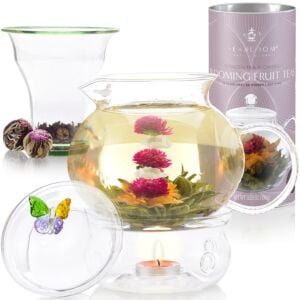
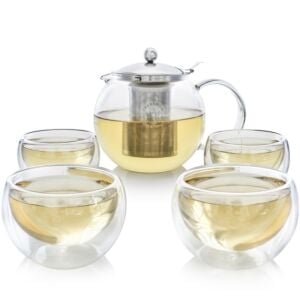
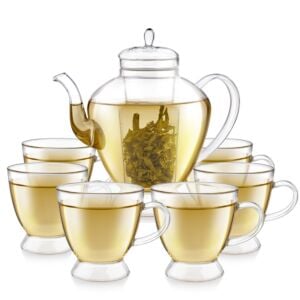
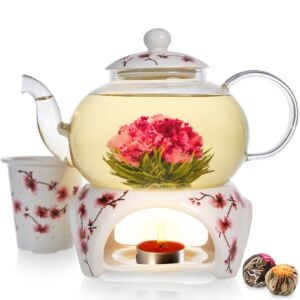
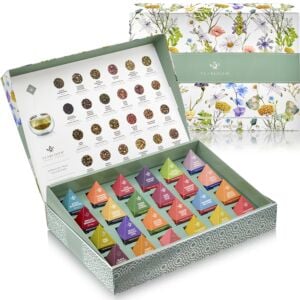

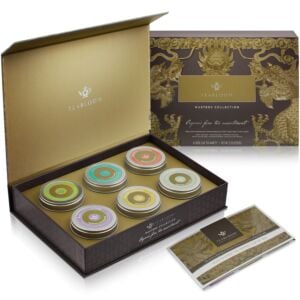
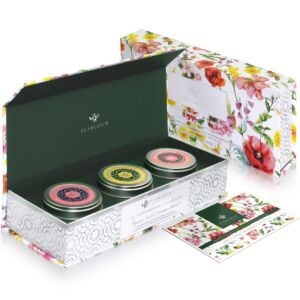
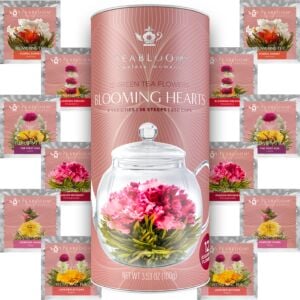
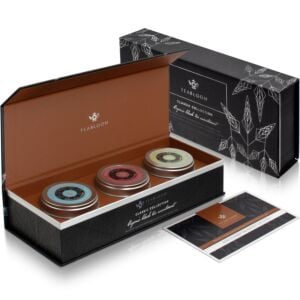
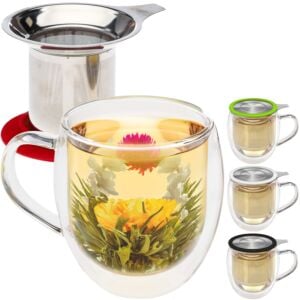


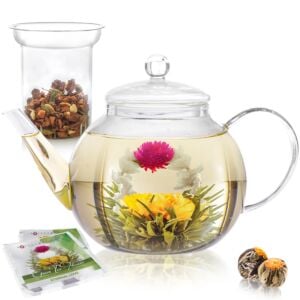
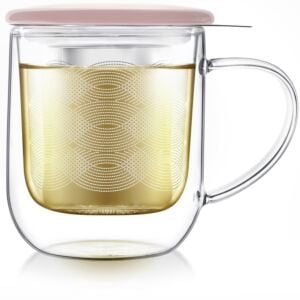

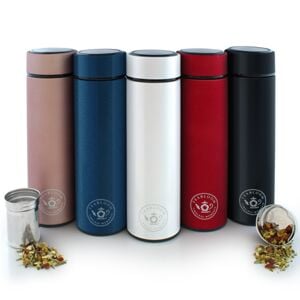
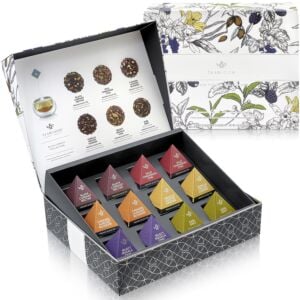
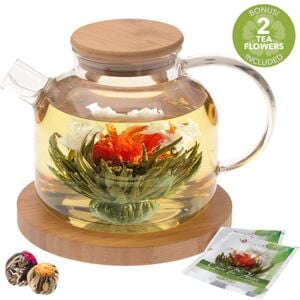
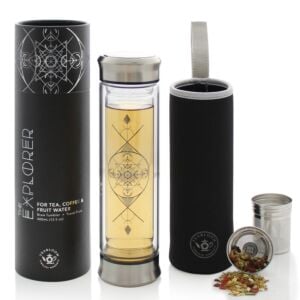
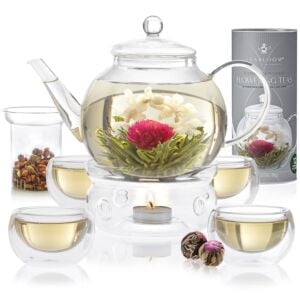

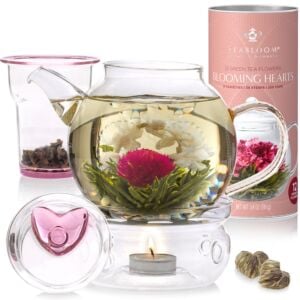
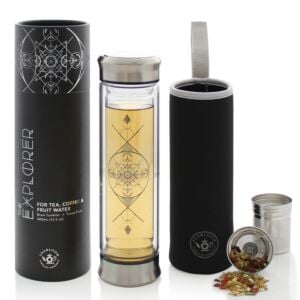
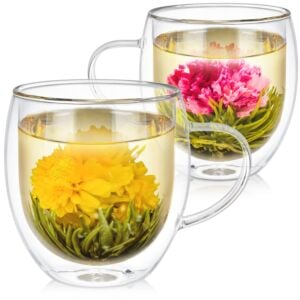
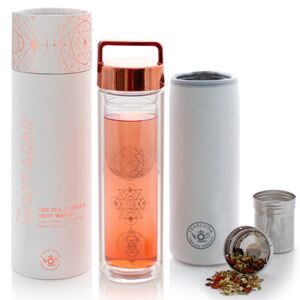
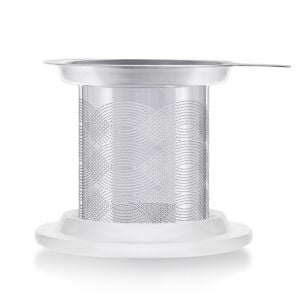
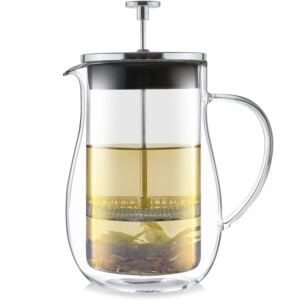
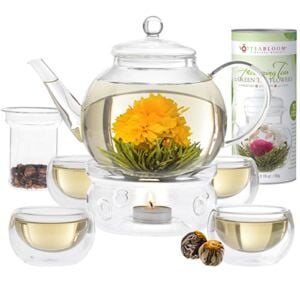

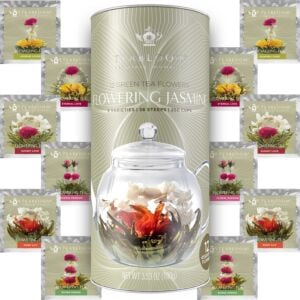


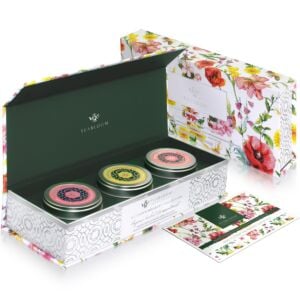
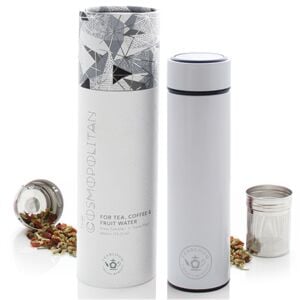

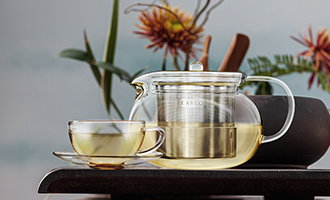
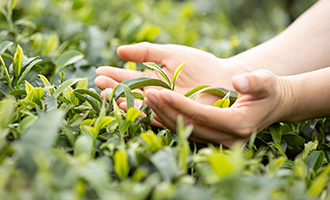
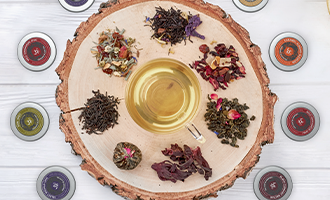


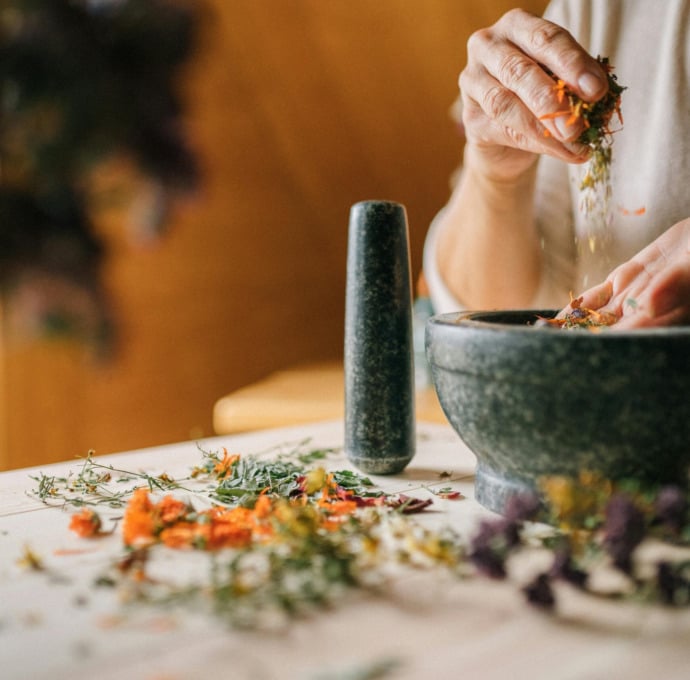

Share your thoughts